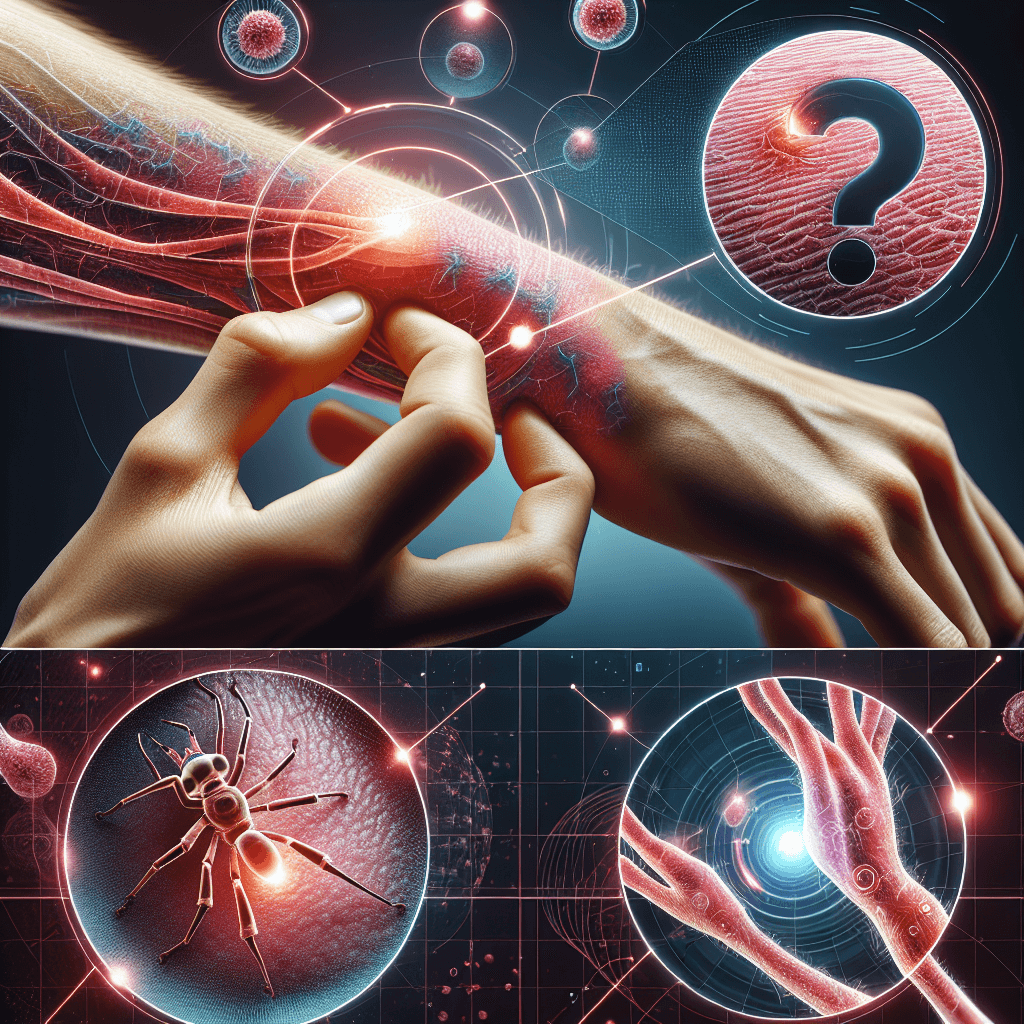The Vicious Itch-Scratch Cycle: Why Does Scratching Make It Worse
We all know the sweet, temporary relief of scratching an itch. But why does that satisfaction often lead to an even more intense itch, trapping us in a frustrating cycle?


Too Long; Didn't Read
Scratching an itch creates a mild pain signal that temporarily distracts the brain from the itch. However, this can also trigger inflammation and the release of more itch-causing chemicals, ultimately making the original itch come back stronger.
The Vicious Itch-Scratch Cycle: Why Can Scratching an Itch Sometimes Just Make It Itchier?
That maddening, persistent itch – we’ve all been there. Whether it's a mosquito bite, a patch of dry skin, or an unknown irritation, the immediate, almost instinctual, response is to scratch. Ah, sweet relief! But then, a moment later, the itch often returns, sometimes with even more intensity. Have you ever wondered why this seemingly counterintuitive phenomenon occurs? Why can scratching an itch, the very act meant to provide relief, sometimes just make it itchier? This post delves into the fascinating science behind the itch-scratch cycle, exploring why that temporary satisfaction can lead to a frustrating encore.
The Initial Deception: How Scratching Temporarily Helps
Before we explore why scratching can worsen an itch, it's important to understand why it feels good in the first place. An itch, medically termed "pruritus," is a sensation originating in the skin that provokes the desire to scratch. When you scratch an itch, you're essentially creating a mild form of pain in that same area.
Here's what happens:
- Pain Signals Take Priority: Your nervous system is wired to prioritize pain signals over itch signals. When you scratch, the nerve fibers that transmit pain send urgent messages to your brain.
- The "Gate Control Theory": This theory suggests that these pain signals can temporarily "close the gate" on itch signals traveling along the same neural pathways to the brain, effectively masking the itch sensation for a short period.
This immediate, albeit temporary, relief is what makes scratching so reflexively satisfying.
The Rebound Effect: Why the Itch Returns Stronger
The problem begins with what happens after that initial pain signal subsides. The act of scratching, especially if vigorous or prolonged, can trigger a cascade of responses that ultimately intensify the itch.
### Skin Barrier Disruption and Inflammation
Scratching physically irritates and can damage the outermost layer of your skin, the skin barrier. This barrier is crucial for keeping moisture in and irritants out. When compromised:
- Increased Irritant Entry: A damaged barrier allows external irritants and allergens to penetrate more easily, potentially triggering more itch.
- Inflammatory Response: The physical trauma of scratching can cause your body to release inflammatory mediators like histamines and cytokines to the site. While part of the healing process, these chemicals are also potent itch inducers. You're essentially adding fuel to the fire.
### The Serotonin Connection
Recent research has highlighted a surprising player in the itch-scratch cycle: serotonin. You might know serotonin as the "feel-good" neurotransmitter, but in the context of itch, it plays a more complex role.
- Pain Relief and Itch Activation: When you scratch, the pain signals can trigger the release of serotonin in the brain and spinal cord. This serotonin helps to dampen the pain.
- Unintended Consequence: Studies, such as those from the Washington University School of Medicine in St. Louis, have shown that this same serotonin can then activate specific neurons (GRPR neurons) in the spinal cord that are responsible for transmitting itch signals back to the brain. So, while serotonin helps control pain, it can inadvertently make you feel itchier once the pain from scratching subsides.
This creates a truly vicious cycle: you itch, you scratch, the scratching causes pain which releases serotonin, the serotonin reduces the pain but activates more itch signals, leading you to scratch again.
### Nerve Sensitization
Repeated scratching can also lead to sensitization of the nerve endings in the skin. This means they become more responsive to even mild stimuli, interpreting them as itchy. Over time, areas that are frequently scratched can become chronically itchy, even in the absence of an initial trigger. This is particularly problematic for individuals with chronic skin conditions like eczema or psoriasis, where the itch-scratch cycle can significantly exacerbate their symptoms and impact their quality of life.
Breaking the Cycle: What Can You Do?
Understanding why scratching makes an itch worse is the first step to managing it. While the urge can be overwhelming, try these strategies instead:
- Cooling: Apply a cool compress or take a cool bath.
- Moisturizing: For dry skin-related itch, keeping the skin well-hydrated is key.
- Gentle Tapping or Pinching: If you must do something, a gentle tap or pinch near the itchy area can sometimes provide relief without causing as much trauma as scratching.
- Distraction: Engage in an activity that occupies your hands and mind.
- Addressing the Underlying Cause: Identify and treat the root cause of the itch, whether it's an allergy, insect bite, skin condition, or something else.
While the temporary relief from a good scratch can be alluring, it often leads to a frustrating cycle of escalating itchiness. By understanding the complex interplay of pain signals, inflammation, and neurotransmitters like serotonin, we can better appreciate why our bodies react this way. The next time you feel that familiar urge, remember the science behind the scratch – resisting might just be your best path to lasting relief. This knowledge empowers us to seek more effective strategies for managing itch, rather than succumbing to the temporary, and often counterproductive, allure of the scratch.


